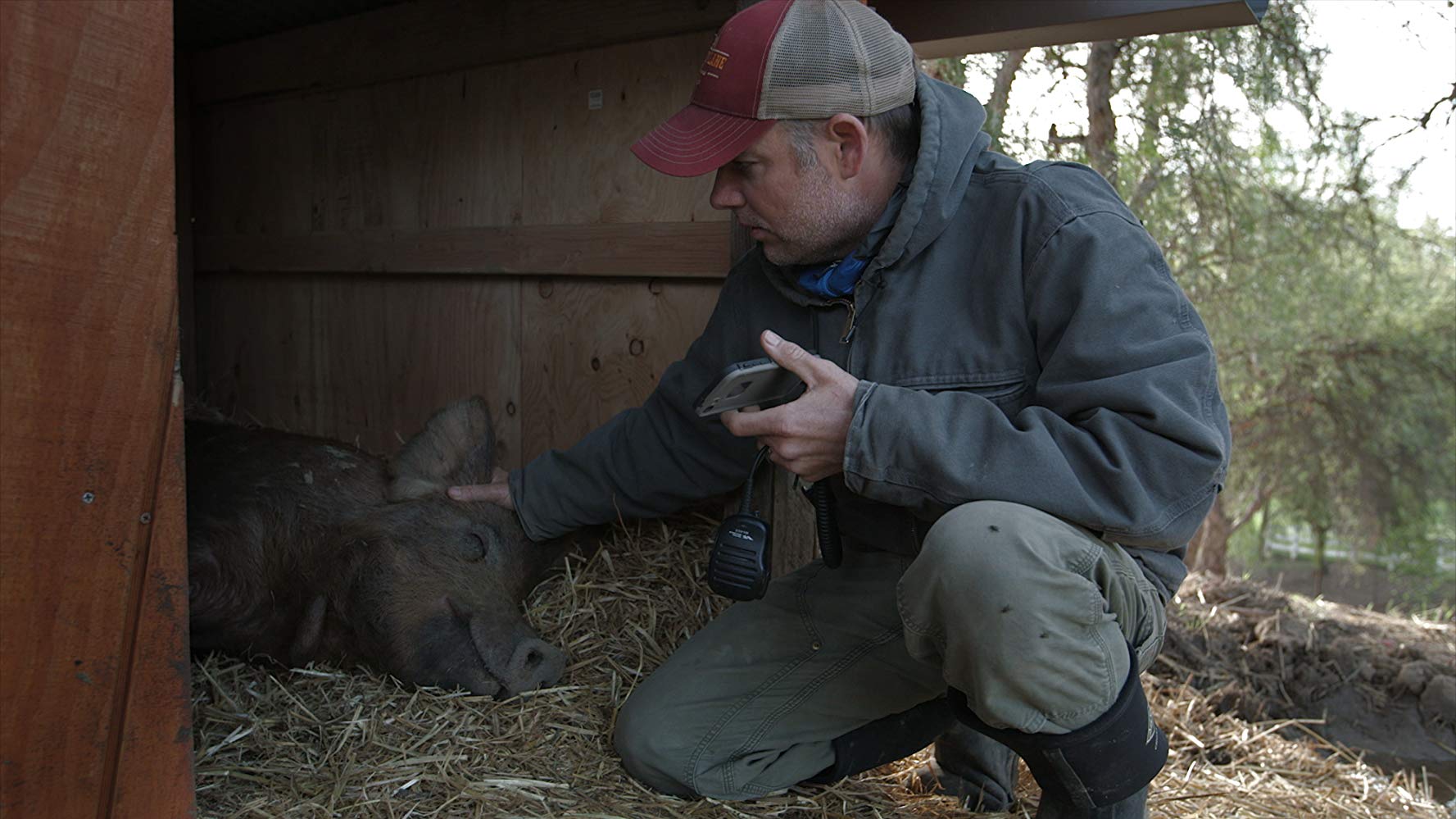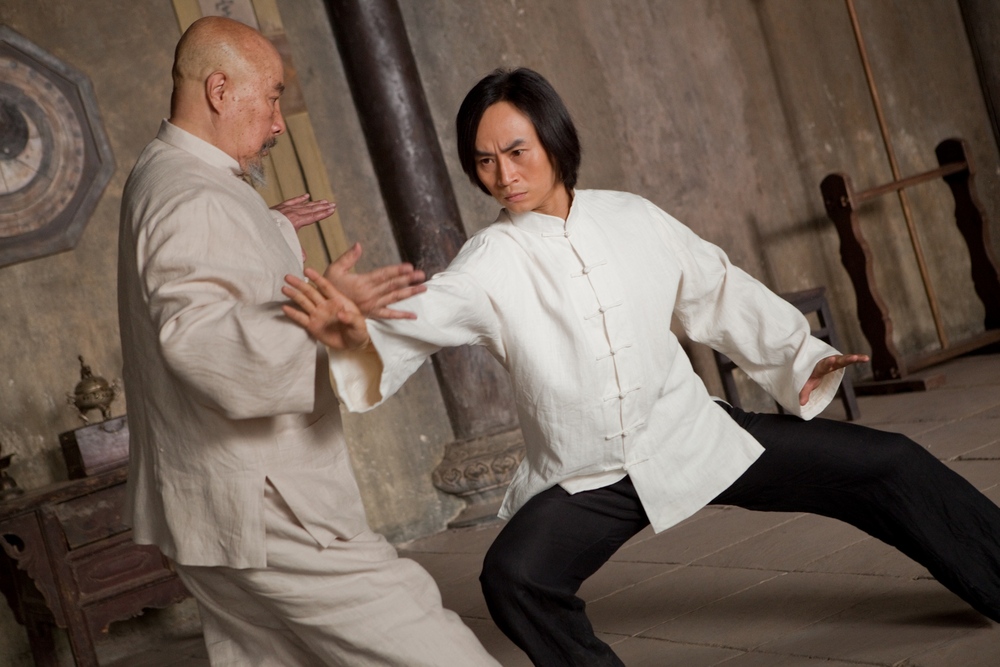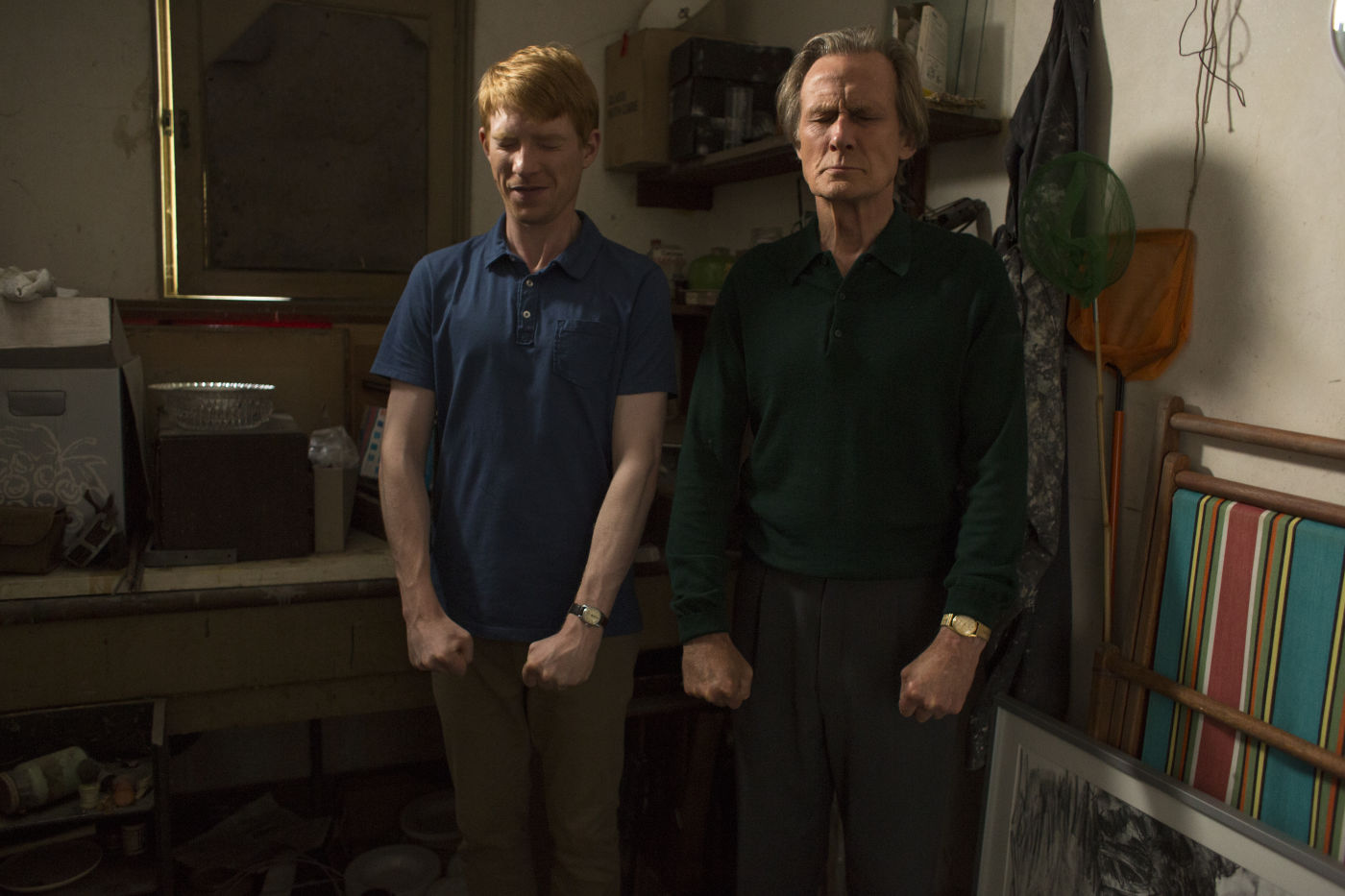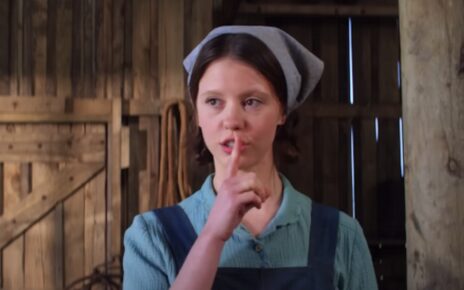At what stage of life do you reach the conclusion: “Let’s be farmers?” It seems like a mid-life crisis kind of thing, but honestly, I couldn’t name any sole who would trade the mortgage, the divorce, the alimony, the furlough, the pollution, the dead-end job, the crime, and the overcrowding for a shot at farming. Hmmmm, reading all that, maybe they should. Maybe I should. What have I got to lose? I mean, besides everything.
John and Molly Chester were just an El Lay couple with a thing for fresh food and dogs. Molly rescues an abandoned canine, but the landlord insists they’ve got a “no fresh food” policy. Sorry, that was a “no dogs” policy, so naturally, the couple moves 100 miles north and becomes farmers.
Honestly, the most impressive part of this whole adventure is the financing, which is referred to, but never divulged. The penniless Chesters must have gotten at least $1M for what they envisioned, and I’d say more like $10M, given CA real estate prices and the ambition of this venture; I have no idea how anybody expected to get a return on that investment.
And yet, here those court Chesters are, new owners of hundreds of acres of dead trees and weeds. Their plan? Make the most bio-diverse farm EVER! You’ll be up to verse 75 of “Old McDonald” before you run out of fauna, and the flora is a larger collection. Their efforts to tame and flourish turn the world’s worst theme park into The Biggest Little Farm. The film spans eight years of development (that’s eleven minutes/year, which is about my exact personal tolerance for farming) while the kiln slowly becomes a very pretty farm.
There is no shortage of troubles along the way – pests, rodents, disease, but, and I want to emphasize this because this is the best part – every time there was a problem, the Chesters sat down with several consultants and discussed a solution that didn’t involve murder, scorched earth, or giant walls. The idea was that biodiversity would always show a solution … and it almost always did. Those of us paying attention realized somewhere in the middle that this film was as much about the metaphor of nation building as farming.
I had no idea how much building a farm is like building a country, but it’s all there between the cels:
1. Diversity is an asset. Always.
2. Science is your friend.
3. Consult expertise.
4. Sit down and think, really think, before attempting a solution.
5. Every solution is a problem; every problem is a solution.
6. Everything you do has predictable consequences, but you can’t always predict what they will be.
7. Everything in your universe plays a role, from the smallest microbe to the largest herbivore.
8. If killing or burning or isolating or walling off is your solution, think harder.
9. If it’s worth doing, never, never, never give up.
10. And, whatever you do, don’t feed them after midnight.
If team Trump took any of these to heart, the United States would be a much more pleasant land to be in these days. But I digress.
I was skeptical about The Biggest Little Farm. Who in flipping Turdsville cares to see a movie about a city couple turning into Ma and Pa Kettle? I was wrong. Way wrong. This film is a fascinating exploration of following your dreams. No, the Chesters never wanted to pitch a no-hitter, find buried treasure, or win an Oscar, but that doesn’t make their dream any less than yours or mine. And it is awesome seeing the vision become reality even with all the roadblocks. The Biggest Little Farm is a testimony to constitution and perseverance. Next time you want to tell a kid to follow their dreams, show him this film and stress that this couple never gave up. They might hate you for it, but I guarantee they’ll learn something.
There once was a SoCal lessee
Who escaped their reality
In true El Lay fashion
Their out-of-place passion
Made for darn entertaining TV
Rated PG, 91 Minutes
Director: John Chester
Writer: John Chester, Mark Monroe
Genre: I have a crazy idea for a lifeplan
Type of being most likely to enjoy this film: Anyone who can appreciate a long-term project
Type of being least likely to enjoy this film: Big Agra




